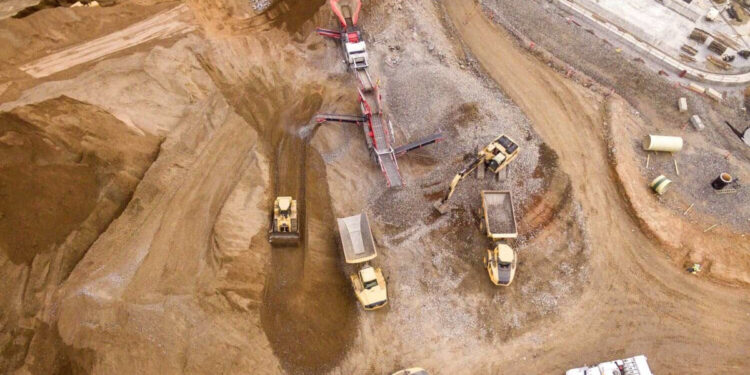Ghana Faces Investor Backlash Over Controversial Bogoso-Prestea Mine Reassignment
The reassignment of Ghana’s Bogoso-Prestea gold mine lease to a little-known local company, Heath Goldfields, has triggered one of the most contentious disputes in the country’s mining history, raising fresh concerns about regulatory integrity and investor protection in one of West Africa’s most resource-rich economies.
The move has prompted accusations that the Ministry of Lands and Natural Resources and the Minerals Commission colluded with Heath Goldfields to unlawfully strip Future Global Resources (FGR) and its subsidiary, Blue Gold Bogoso Prestea Limited, of their rights to operate the historic mine.
What began as FGR’s ambitious attempt to revive a debt-laden mine acquired from Golden Star Resources in 2020 has spiralled into a $1 billion international arbitration case, testing Ghana’s reputation as a secure investment destination.
Disputed reassignment
Despite having secured ministerial approval for a restructuring plan and financing commitments reportedly exceeding $150 million, FGR’s operations were abruptly halted last year after the Minerals Commission and the Environmental Protection Agency withheld permits deemed essential to restart production.
In September 2024, the Minerals Commission issued a notice terminating FGR’s mining lease. Barely two months later, the Ministry of Lands and Natural Resources approved a recommendation to reassign the same lease to Heath Goldfields — a company incorporated in February 2024 with a stated capital of just GH₵10,000 ($700).
Within days of the approval, Heath Goldfields reportedly moved personnel and equipment onto the mine site, taking possession of FGR’s assets, including vehicles, residences and gold stockpiles. The company’s rapid occupation has been described by FGR officials as “an institutionally sanctioned expropriation, cloaked in officialdom.”
Industry lawyers argue that the reassignment contravenes Ghana’s Minerals and Mining Act 703, which prohibits the transfer of a valid lease without parliamentary ratification and due process.
A chain of setbacks
FGR’s tenure at Bogoso-Prestea was marred by inherited debts exceeding $60 million and labour unrest over unpaid severance obligations. Despite these challenges, the company established a special purpose vehicle, Blue Gold Bogoso Prestea, to spearhead restructuring and attract international financing.
By early 2024, FGR had secured conditional approval from the Ministry to implement its turnaround plan, contingent on proof of funding within 120 days — a condition it says was met through a Nasdaq-listed bond arrangement and regional banking commitments.
Nevertheless, regulatory approvals were withheld, and in January 2025 FGR received confirmation that its lease had been terminated, retroactively dated to the previous year.
Collusion claims and investor risks
The creation of an interim management committee — composed of union leaders and officials from the Minerals Commission — further fuelled suspicions that the termination was orchestrated.
Analysts say the swiftness with which Heath Goldfields obtained the lease underscores governance gaps and the potential capture of regulatory institutions by vested interests.
Section 68 of Act 703 allows the Minister to revoke a lease for non-compliance, but the law provides no mechanism for an immediate reassignment to another party before arbitration or legal resolution.
FGR has since filed for international arbitration, seeking $1 billion in damages for what it terms a “state-enabled expropriation.” It has pledged to drop the case if its lease is reinstated.
Broader implications
For Ghana, the case carries risks beyond the mining sector. Arbitration losses could strain investor confidence at a time when the government is aggressively courting foreign capital to support economic recovery efforts under an IMF programme.
“The optics are damaging,” said a West African investment analyst. “If a billion-dollar mining asset can be reassigned overnight, investors will question the sanctity of contracts in Ghana.”
Once regarded as one of Africa’s most stable mining jurisdictions, Ghana now faces a reputational test — one that will determine whether rule of law and contract enforcement can withstand the pressures of political and commercial influence.









